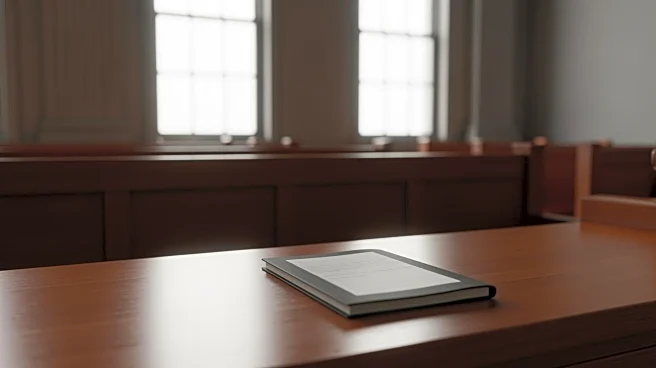What's Happening?
A federal appeals court has denied a request to reconsider an earlier decision that prevented a federal judge from investigating whether Trump administration officials acted in contempt for allegedly violating
a court order. The case involves the deportation of hundreds of alleged gang members to El Salvador under the Alien Enemies Act in March. The decision allows Judge James Boasberg to proceed with the early stages of contempt proceedings, including requesting evidence from the Trump administration about the decision not to turn around a plane bound for El Salvador after he ordered it be returned. The court described Boasberg's actions as a measured response to perceived shocking conduct by the Executive Branch. The district court has the ability to set a new deadline for information production regarding the probable contempt identified.
Why It's Important?
This ruling underscores the judiciary's role in maintaining checks and balances on the Executive Branch, particularly concerning adherence to court orders. The case highlights significant rule-of-law concerns, as judicial orders are binding commands that must be obeyed by all parties, including the Executive Branch. The decision could impact how future administrations handle deportations and the use of wartime authorities like the Alien Enemies Act. The American Civil Liberties Union views the ruling as an opportunity to proceed with the contempt inquiry, potentially affecting U.S. immigration policy and the treatment of noncitizens.
What's Next?
Judge Boasberg is set to discuss with the parties how to proceed with the court's contempt inquiry at a hearing. The whistleblower's allegations that the Trump administration deliberately planned to defy Boasberg's order may influence the proceedings. The government will have the opportunity to raise defenses and seek review through the ordinary process if dissatisfied with any appealable order. The outcome of these proceedings could set precedents for how similar cases are handled in the future.
Beyond the Headlines
The case raises ethical and legal questions about the use of the Alien Enemies Act, an 18th-century wartime authority, to deport noncitizens with limited due process. It also highlights the tension between executive actions and judicial oversight, potentially affecting the balance of power between branches of government. The implications for international relations, particularly with El Salvador, could be significant, as the deportations involved alleged gang members sent to a mega-prison in the country.









